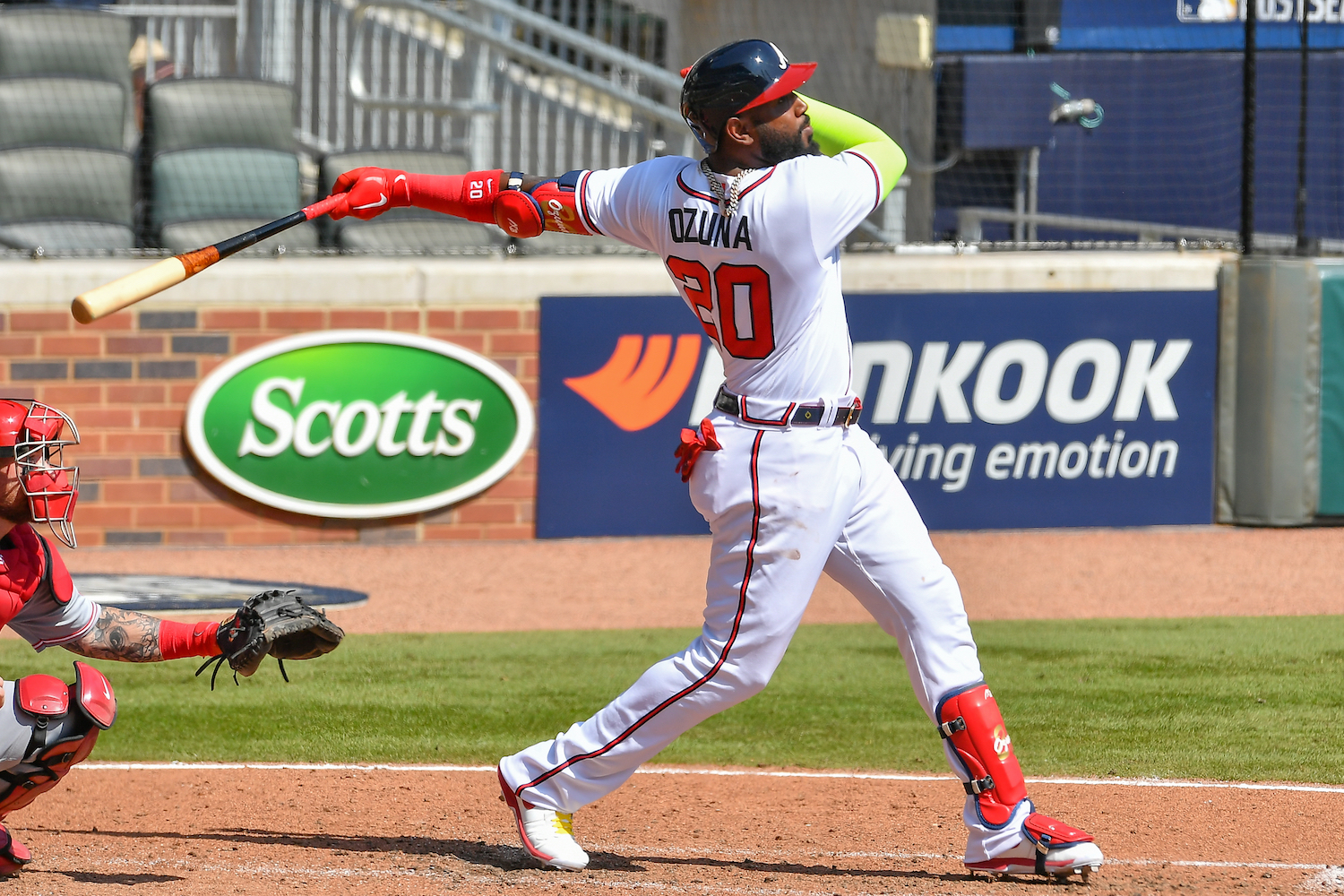MLB
National League Making Major Mistake If It Reverts to Pre-2020 Designated Hitter Rules

The 2020 MLB season will be remembered as the year of the pandemic. The season was delayed, then shortened, and finally, once it started, multiple teams dealt with outbreaks. A new set of pandemic-specific rules was also instituted in 2020, including the universal designated hitter.
With the pandemic-shortened season behind us and the 2021 season looming, a new report recently came out and revealed the National League plans on reverting to its previous rule that eliminates the designated hitter and forces pitchers to hit. If this happens, MLB is making a major mistake. The numbers don’t lie.
The designated hitter’s interesting history
RELATED: Which MLB Pitcher Has the Lowest Batting Average of All Time?
In the late 1960s, several minor league organizations first adopted the designated hitter, which resulted in increased offensive production. The American League, which had its share of offensive struggles around that same time, followed suit and adopted the designated hitter rule in 1973. The National League didn’t.
In 1980, the NL broached the subject again but ultimately decided against it. That was the last time the NL discussed it. As a result, for decades, NL pitchers have achieved unsurprisingly lackluster results at the plate. Since 1973, only 19 pitchers, with a minimum of 50 at-bats, have topped the .300 average mark.
LA Dodgers pitcher Orel Hershiser is the best pitcher in the designated hitter era to step into the batter’s box, hitting for an impressive .356 average in 1993, which included 26 hits in 73 plate appearances. He had no home runs and just six RBI. Other well-known pitchers on the list include Mike Hampton, Rick Rhoden (twice), and Fernando Valenzuela, who hit .304 in 1990.
Interestingly, the most recent pitcher to hit above .300 was Micah Owings, who hit .339 for the Arizona Diamondbacks in 2007.
Designated hitter used in both leagues for 2020
RELATED: Ron Blomberg Became Baseball’s First Designated Hitter on This Day in 1973
The MLB 2020 season was different on so many levels. For starters, MLB shortened the season to 60 games after protracted negotiations between the league and the players’ union. That condensed schedule precipitated a whole host of additional changes.
Among the more notable changes were a new extra-inning rule, where teams would begin each extra inning with a runner on second base, and the universal designated hitter rule used in both leagues. The league implemented both rules in an effort to keep players fresh during the abbreviated season.
Atlanta’s Marcell Ozuna was the most productive designated hitter in the NL during the 2020 season, hitting for an impressive .338 average with 18 home runs and 56 RBI. He was one of the main reasons the Braves had such a successful run in the postseason and advanced to the NLCS.
Ozuna’s production at the plate in 2020 provided the perfect example of why replacing the pitcher with a qualified batter makes sense.
National League reverting to old rule would be a major mistake
According to The Athletic’s Ken Rosenthal, MLB recently instructed clubs in a memo to operate under the assumption that there won’t be a designated hitter in the NL during 2021. Rosenthal said a final decision has not been made.
If MLB decides to revert to its old rules, it’s a business decision. And in any business, the goal is to make money. The way baseball or any sport does that is by generating revenue from fans attending games in person or by advertisers paying to reach those fans watching on TV.
While it’s accepted across sports that defense wins championships, it’s also understood that offense draws eyeballs. Offense and scoring are more entertaining, no matter the sport. Sure, there are the baseball purists who prefer a 1-0 pitcher’s duel, but they’re in the minority and they don’t fill up MLB stadiums across America.
If hitting for average and blasting home runs weren’t important, MLB rosters would be filled with a bunch of .200 hitters knocking in a few home runs each season. That’s not the case, and those hitters who cannot produce offensively, are sent down to the minors.
So if it’s not acceptable for a position player to hit that poorly on a consistent basis, why would it be any more acceptable for a pitcher to fail just as frequently? In essence, it’s a wasted at-bat, with an occasional pitcher hitting for a decent average, but as the numbers have shown since 1973, those type of pitchers are rare.
While the AL figured the designated hitter out almost 50 years ago, it’s time for the NL to catch up. And in these uncertain times, when MLB just finished a season without fans, and they are in desperate need of fans going forward, the NL would do itself and all of baseball a favor by employing the designated hitter in 2021 and beyond.
Stats courtesy of Baseball Reference.











